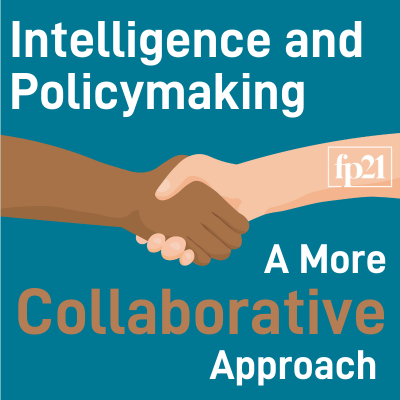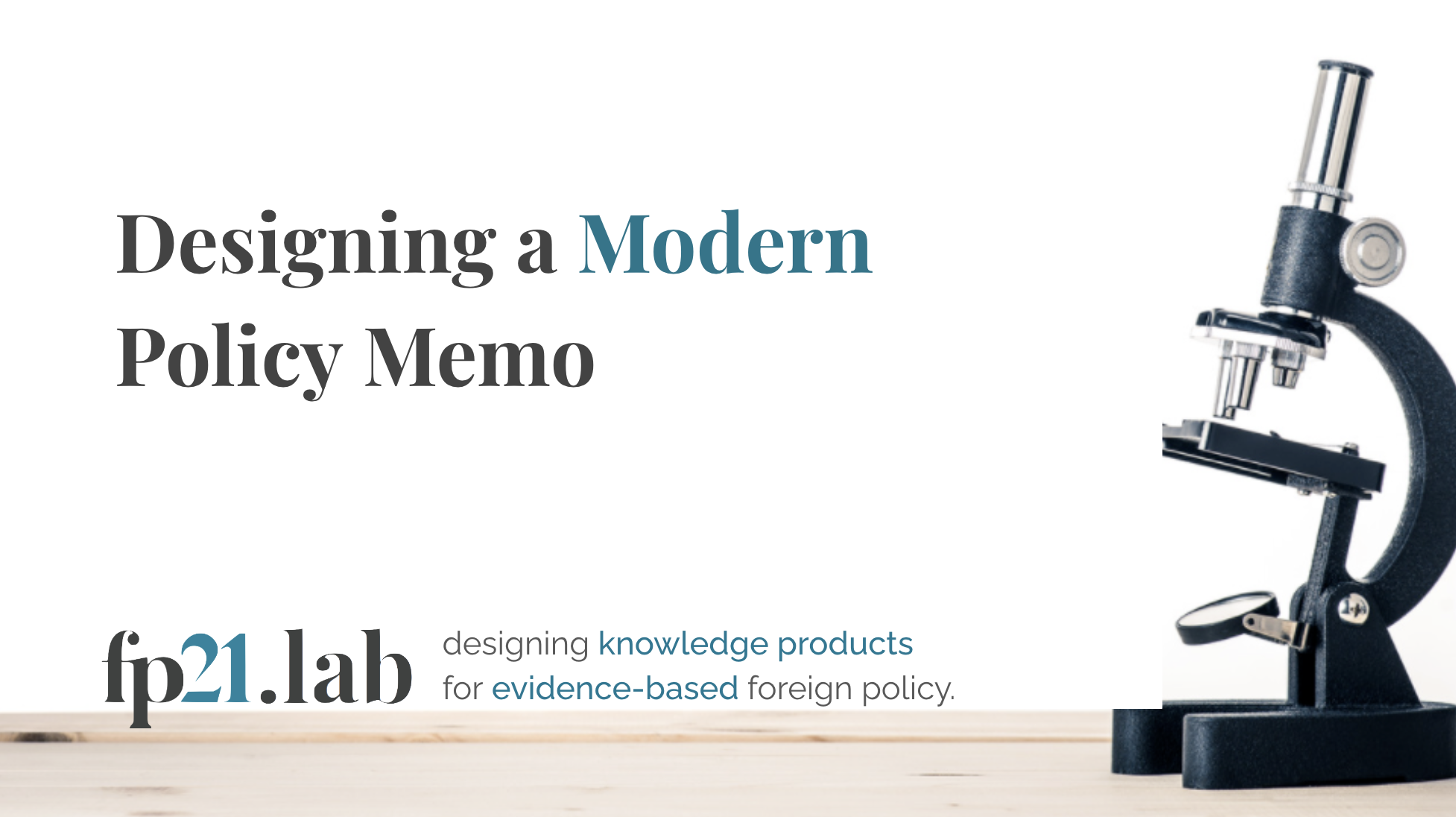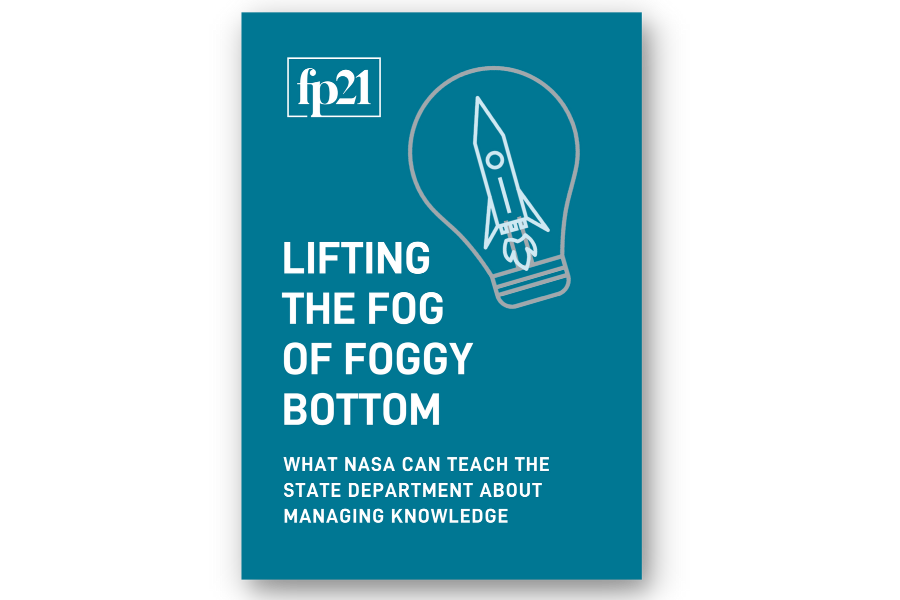Publications
fp21 is building a new culture of foreign policy. Explore our publications below.

Intelligence and Policymaking: The Opportunity for a More Collaborative Approach
Gary Gomez: This paper explores the implications of a more collaborative and connected approach to intelligence analysis and policy formulation. It explores a model in which analysts and policymakers are co-located within policy offices at all levels of policymaking. The goal of this approach is to enable a better fusion of experience and knowledge to support holistic and relevant intelligence analysis and informed evidence-based foreign policy.

How AI Could Revolutionize Diplomacy: From ChatGPT to quantum computing, emerging technologies will offer new tools for peacemaking
Andrew Moore: With advances in areas such as artificial intelligence, quantum computing, the internet of things, and distributed ledger technology, today’s emerging technologies will offer new tools and techniques for peacemaking that could impact every step of the process—from the earliest days of negotiations all the way to monitoring and enforcing agreements.

The Bayes Brief: Designing a Modern Policy Memo Process
Alex Bollfrass & Ellice Huang: Respected State Department observers complain that “clearance hell” weakens American diplomacy. The Bayes Brief re-imagines the humble policy memo and clearance process by capturing and summarizing evidence in a systematic format conducive for policy success in the information age. It is a simple intervention into the policy process that could positively impact the effectiveness of U.S. foreign policy.

Lifting the Fog of Foggy Bottom: What NASA Can Teach the State Department about Managing Knowledge
This report explores how knowledge management can transform diplomacy. By prioritizing knowledge as its most important strategic resource, the State Department can make more effective policy, improve productivity, and build a learning-centric culture.

Let's Get Serious about Research for Diplomacy: A proposal for a foreign policy-focused FFRDC
Dan Spokojny & Alexandra Blum: The Department of State has a knowledge problem. Few diplomats have the time or training to conduct serious research, nor is any office dedicated to answering central questions like, “When does U.S. diplomacy work?”. The State Department requires help answering such ambitious and vital questions. To fill this gap, we recommend State sponsor a new Federally Funded Research and Development Center (FFRDC) for U.S. foreign policy.

State Department Data Requires Oversight to Avoid Digital Anarchy
Dan Spokojny: Rapid progress on data at the State Department is turning up some pain points. Data scientists struggle to access the information they need in a timely fashion. Tangled and outdated legal authorities tie the hands of analysts trying to collaborate. Valuable data sets collected or purchased by one office are not accessible to other offices. And an archaic IT infrastructure held together with duct tape makes diplomacy’s information superhighway feel more like a dirt road. To avoid digital anarchy, Congress should give State’s first-ever Chief Data Officer (CDO) oversight over all of State’s data resources.

State’s New Data Strategy: A (potentially) historic step
Dan Spokojny: The State Department released its first ever Enterprise Data Strategy last week, marking a potentially historic turning point in the conduct of US diplomacy. Deputy Secretary of State Brian McKeon, calls a data-powered world a “paradigm shift” and suggests a “culture change in the Department” will be required. The strategy also suggests that if the United States cannot harness the power of data, we risk getting out-competed by our adversaries.

